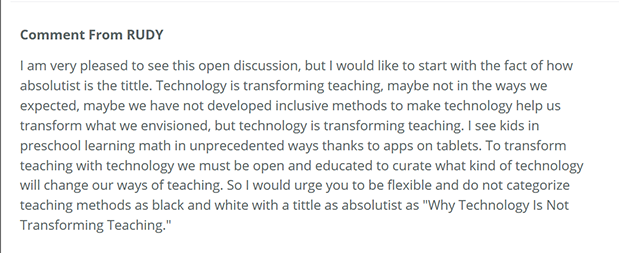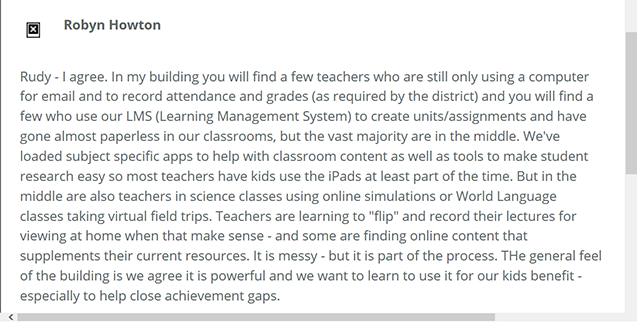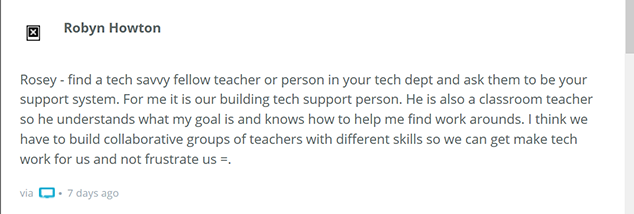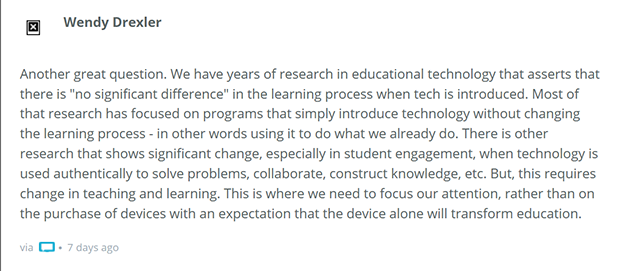Recap: Robyn Howton’s EdWeek Webchat
Last Tuesday, Robyn Howton, Rodel Teacher Council member and English teacher at Mount Pleasant High School in Brandywine School District, together with Wendy Drexler, ISTE Chief Innovation Officer, hosted a live webchat on Education Week to discuss the recent article “Why Technology is not Transforming Education.” Benjamin Herold, who wrote the original article, moderated the discussion.
Robyn and Wendy addressed a flood of questions from the public. I’ve captured some of the major themes of the discussion, along with responses from Robyn and Wendy, below. The discussion thread centered on the observation that technology has not changed classrooms into the student-centered, personalized instruction hubs many had hoped. According to Howton, we are only at the start of a long progression toward optimally integrating technology into classrooms to benefit students. Full transcript of the chat is available here.
Why hasn’t the use of technology been transformational in classrooms?
“[Though] we feel that we are transforming,” Howton wrote, “it is just a process”—one that could take up to ten years to implement successfully.”
Removing the Barriers: Access to Resources
Howton acknowledged that there are some teachers who feel uncomfortable using technology or lack the equipment to transition their curriculum to a digitized student-centered model. She suggested some strategies to overcome these obstacles, for example, finding “early adopters” within the school to create interdisciplinary projects and share their success.
Addressing Teacher Buy-in
During the chat, commentators questioned whether research supports the theory that technology investments actually improve student achievement. Wendy Drexler agreed with the concerns, and wrote that there is “no significant difference” when technology is “simply introduced without change to the learning process.” However, Drexler added, “There is other research that shows significant change, especially in student engagement, when technology is used authentically to solve problems, collaborate, construct knowledge, etc.” Before making the investment in expensive devices, teachers must “stop and carefully define the change we want to see happening,” Drexler wrote.
One commenter wrote that most classrooms today solely replace old technology with newer devices without changing the learning process: “The teacher dominated model affects the technology’s ability to reform.” The greatest challenge discussed during the chat was teacher confidence and support to change the methodology.
Living in an age where new technology is constantly redefining our social interactions, we tend to expect that digitized learning will quickly result in more student engagement and learning. However, creating a classroom with truly integrated technology is a gradual process. Transformational change, which can drive student-centered learning, requires access to training resources and equipment, teacher buy-in, and defining the change we want to see happening.
To one commenter, Howton emphasized, “Time and resources are key.”
Related Topics: Delaware, ed tech, edweek, Mount Pleasant, personalized learning, rodel, Rodel Teacher Council










